Making the World a Better Place – One Job Seeker At a Time
Member Spotlight: Glenn Diersen, Founder and President of Summit Human Capital
Virginia Born and Bred
Glenn Diersen was born in Virginia and grew up in Richmond’s West End. His parents, traditional baby boomers, modeled an example of finding a good company to work for, working hard, and then retiring from that same company.
But Glenn had different ideas.
Born with what he describes as “entrepreneurial blood” flowing through his veins, Glenn was only 14 when he started his first company painting houses. By the time he graduated from High School in 2009, he had started a second business and had his eye on one day starting a third.
School and Next Steps
After graduating from James Madison University in 2013, with dual degrees in Business Administration and International Business and Spanish, Glenn headed to Spain for approximately a year to polish his international business acumen and achieve his dream of becoming fluent in Spanish. He was successful in both.
On returning to the U.S., Glenn went to work for The Select Group in Washington, D.C., where he spent the next several years learning all he could about the technology recruiting industry, particularly as it relates to the government and staffing contracts.
After successfully building a new, $200 million vertical sales division at The Select Group, Glenn felt the pull to start out on his own. With his future wife, Nina Ildari, by his side, in 2018 he left D.C., returned to Richmond, and together they founded Summit Human Capital where he now serves as founder and president, and Nina is CEO.
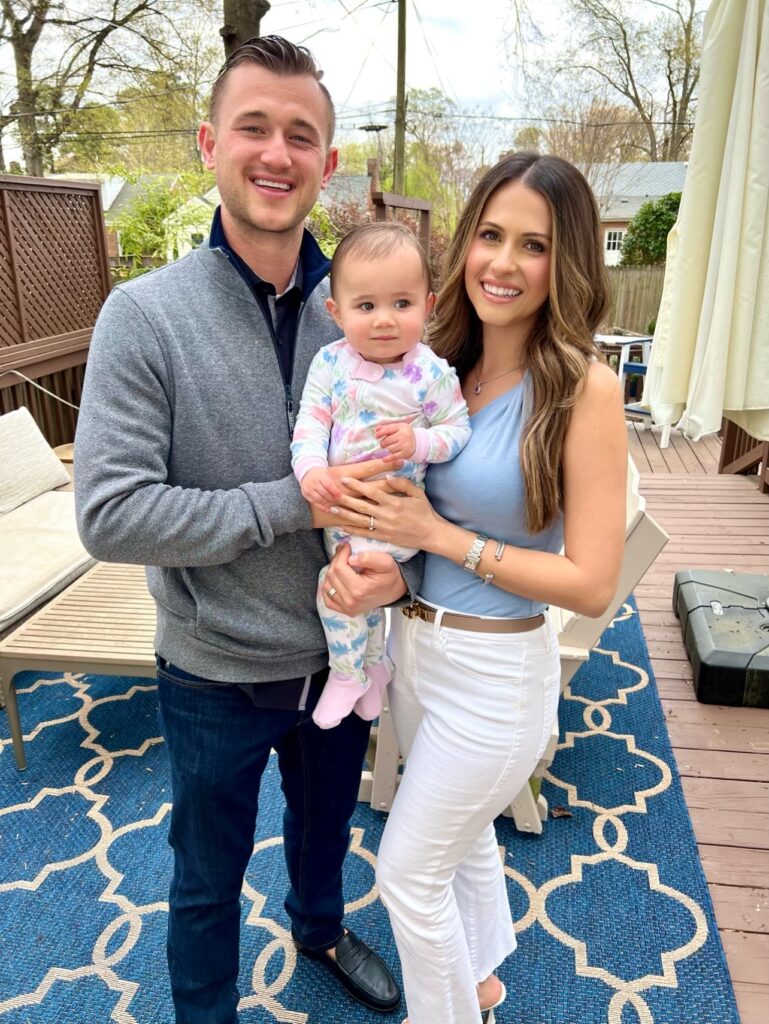
Growing Summit Human Capital
Summit Human Capital is a global technology workforce solutions company which Inc. Magazine recently ranked number one as the fastest growing firm in the Mid-Atlantic region. A newly designated Women Owned Small Business (WOSB), they have two offices, one in Richmond and the other in Northern, Virginia. The company employs over 200 work associates in the U.S. and in India and is on track to double in size within the next year.
Glenn and his wife founded the company with the understanding that traditional job hunting can be a daunting process. To change that narrative, they developed a program to transform the experience from daunting to rich, rewarding and fulfilling for all parties involved – the job seekers themselves and the companies who hire them.
One of the ways Summit Human Capital is successful in doing this is by going the extra mile upfront to help clients identify their short- and long-term career ambitions in addition to their skill sets. At the end of the day, Summit Human Capital does not just help people find jobs. It helps people find jobs that align with their unique talents and goals – the kinds of jobs that have the power to change their lives and the lives of their families – the kinds of jobs that have the power to make the world a better place, one job seeker at a time.
Energy, Vision and Passion
When you speak with Glenn, it becomes immediately clear that he is a high-energy guy, who knows exactly what he wants in life, and has a well thought out plan to get there. He doesn’t leave anything to chance. And even seemingly small details have been thought about by him and leveraged to help him achieve his goals.
For example, Glenn signs each of his communications with the distinct salutation “With Gratitude, Glenn.” Under his photo is a favorite quote by Napoleon Hill: “Your only limitation is the one you set up in your own mind.” And it’s from this unique space of gratitude and limitless possibility that Glenn surrounds himself, both literally and figuratively, and approaches each day.
Covid’s Impact On Business
Glenn is very clear that the pain and suffering COVID has caused all over the world is catastrophic and that his heart goes out to all those who have been hurt by this modern-day plague.
With that said, he adds that a silver lining of the pandemic is that it has dramatically sped up the adaptation of working remotely and the creation of hybrid work environments. Both of which he feels will make society better – and are here to stay.
VACEOs
Like many leaders, Glenn admits that at times it is lonely at the top of an organization. It can feel isolating. For him, the roundtable format has been a god send because it has given him a tribe of trusted peers to support him and help him grow.
His advice to those who are curious about VACEOs but have not joined is simple and straight forward…Don’t wait. Join today. Invest in yourself.
HR Strategies for Employee Retention

Three Simple Ways To Keep Your Workforce, Happy, Healthy and Engaged
The pandemic workplace dynamics have led to unprecedented quit rates and a labor shortage. As a result, employees have more employment options and power, and keeping good people in place now requires more than just “work” and “pay.” To navigate this challenging landscape, business owners need to focus on what they can control. Here are three steps to invest in your employees’ well-being to build engagement and keep your workforce!
1. Conduct Stay Interviews
Stay Interviews are a great way to develop your employees and drive strategic change. These structured conversations between supervisors and employees are designed to learn about employees’ strengths and areas of interest. Employees at every level should participate in a stay interview to be effective and successful. Having these conversations at the start of the new year is a great way to engage the workforce and gather feedback. Based on the outcome of these interviews, implement measurable changes and evaluate them throughout the year. Quantifying the changes helps drive success. This can be accomplished by defining key metrics along with strong communications. Be consistent and plan to keep this process alive every new year.
To help get this process started, below are questions for managers to consider asking their direct reports. Structure these conversations as an opportunity for you and the interviewee to learn and grow.
Question 1: How can I improve my management style?
Remember, people tend to leave managers, not jobs. Embrace this question with an open mind and be prepared to receive constructive criticism.
Questions 2: What do you like about your job; what do you not like?
These questions will provide insight into the individual’s strengths since people typically enjoy doing what they are best at. Revising their job responsibilities to include more of what they like will help improve performance, thus fostering retention.
Question 3: What are your short and long-term goals? And how can our organization help support them?
Good talent leaves if they don’t see a clear path to career advancement. Leave this conversation with a clearly defined developmental plan and how the business can support the individual to achieve their goals.
2. Invest in a Wellness Program
A wellness program is an initiative provided to employees to encourage a healthier lifestyle. The bonus is that improving an employee’s well-being positively impacts productivity, engagement, company loyalty and helps reduce health care costs. In addition, it can be used as a recruiting tool. Here is a list of cost-effective wellness programs that can easily be integrated into your organization.
- Wellness Challenge
Encourage team members to engage in workouts and to drink more water. Have them keep track of their accomplishments to win health-related prizes at the end of the month.Yoga/Meditation Classes
Offer lunchtime breaks that include 15-30 minute yoga or mediation classes. Classes can be found on Youtube!
- Healthy snacks and lunch options
To advocate healthy eating, offer healthy snacks such as nuts, dried fruit, or fresh fruit in the breakroom.
- Offer flexible work hours
The 9:00 to 5:00 day is a thing of the past. Allow your team members to set their hours.
- Advocate for employees to take their vacation
Taking time off to recharge promotes productivity! Encourage your employees to take all their vacation days and do not encourage rolling over days or paying them out.
- Say “thank you” and provide feedback
Showing appreciation makes one feel valued and helps people stay motivated.
- Smoking cessation programs
Supporting smokers to quit their habit will help success rates! Fewer smokers will not only reduce healthcare costs but also improve productivity.
3. Review your rewards and compensation programs
In this competitive job market, it is critical to go beyond just salary to retain and attract talent. By building enticing compensation packages (packages that creatively combine the total value of base pay, benefits, rewards, and other perks into your business strategy), you can distinguish yourself as an “employer of choice.” While there is no one-size-fits-all approach, it is essential to evaluate the below offerings to ensure you are competitive and aligned with your market and industry.
- Base compensation
You want your employees’ salaries to be equal to or more than the industry standard for a specific job title in that location.
- Employee Bonus Programs
Giving incentives allows you to reward your top performers. Here are the five most popular rewards programs: annual incentives, spot bonuses, referral bonuses, signing bonuses, and profit-sharing plans.
- Non-monetary rewards
Employees put a lot of value into their quality of life. Here are examples of non-monetary rewards: flexible schedule, an extra day off, time for volunteer work, training and/or mentoring programs.
- Benefits and Retirement
Research shows that a competitive benefits plan can play a vital role in attracting and retaining skilled workers. This plan should include: healthcare, retirement savings and planning, paid time off, paid parental leave, flexible work schedule, and professional and career development.
- Recognition and Promotions
Create a culture of recognition. A critical piece to the success of this initiative is regularly promoting your programs to make them appealing to your employees.
Remember, a more engaged workforce isn’t just a loyal workforce; it’s a more productive one. Building and retaining a great team is key to your company’s long-term growth and success. In an economy where workers have the upper hand, it is more important now than ever to incorporate employee retention strategies into your business plan.
The Author, Beth Williams of Warren Whitney
Beth Williams, Director of Human Resources at Warren Whitney, has worked in human resource management for more than 25 years with experience that spans many diverse industries, including energy, financial services, banking, legal services, pharmaceuticals, IT, and non-profit. She provides a full range of HR consulting services and strategic solutions, which are customized for each client and provide a clear direction to company goals and objectives. Beth has worked with many of her clients on a long-term basis, serving in interim HR director roles for several small and large businesses around Virginia.
About Warren Whitney
Warren Whitney’s HR team works with business leaders to strategically evaluate the best path forward. Their work includes in-depth compensation and benefits analysis, organizational structure and planning, as well as talent management.
About Virginia Council of CEOs (VACEOs)
Virginia Council of CEOs (VACEOs) is a nonprofit organization connecting CEOs for learning and growth. Formed more than 20 years ago, member benefits include placement in a peer roundtable group and access to a thought leader network, and a robust program of events for learning and growth. This is not a networking group, but rather a group of CEO peers who are invested in the success of each member. To qualify for membership CEOs must run a business with $1M+ revenue and 5+FTEs. Learn more at www.vaceos.org.
5 Questions Every CEO Should Ask their Banker

As business leaders, it is imperative to have an inner circle of advisors you trust. In addition to a CFO, you often seek advice from attorneys, CPAs, and insurance agents to name a few. Adding a local banker to your list who lives and works in your market is smart and strategic.
Of course, a banker will discuss your business finances and help you gain access to capital. A trusted banker also has vast knowledge of the market, is up to date on the latest business deals and happenings and can share a wide network of contacts to help your business grow. With a community bank, decisions are made locally and often, much quicker, than at larger national financial institutions.
I would encourage any business leader to ask these questions of their current or prospective banker.
1. Is now a good time to expand my business?
Your banker should walk through different scenarios with you. What is the current demand for your products or services? Are customers requesting a new product line? Do you have customer support to grow? Are you growing so fast that you can hardly manage current business? Do you see an unprecedented opportunity that is exciting and difficult to pass up? Is your overall industry growing and is the opportunity ripe?
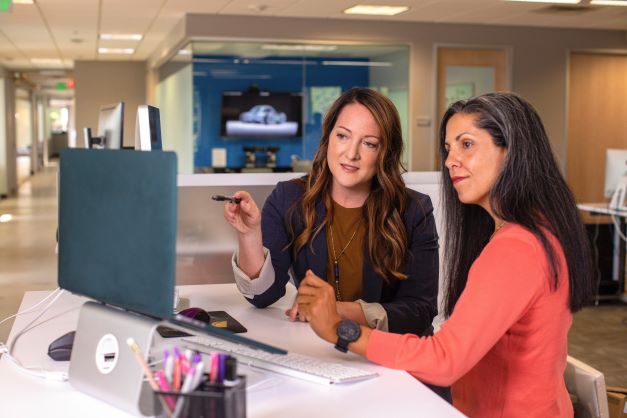
2. What precautions should I put in place to help my business with the concern of inflation and a potential recession?
Your banker understands that the effect of inflation on small to medium-sized businesses may seem somewhat insignificant in the short term; however, it can quickly have an impact on your bottom line. Reduced purchasing power means that businesses will sell less and potentially lower profits. Lower profits mean a decreased ability to grow or invest in the business itself. Credit control can help offset inflation. Your banker may direct you to increase savings and reduce unnecessary expenditures.
3. Can you offer my business options outside of traditional banking?
A community banker should detail any new technology and additional services they offer. Such services can help you cut costs and be more efficient. There are multiple treasury management solutions that can efficiently help you manage your business budget, improve cash flow, protect against fraud, and reduce processing delays. Definitely inquire about remote and mobile deposit, ACH and wire management systems that will save you time and money.
4. Can you help me with supply chain issues?
Your local banker can tell you about certain lending tools it can recommend to offset this rising challenge. Supply chain financing can support the trade relationships of middle market companies as a way to help stabilize supply chains and improve working capital.
5. How can you support my growth plans?
A trusted banker should understand your business and industry. He or she can assist in reviewing financial forecasting and projections. Ask about cash flow analysis and tips to gain financial efficiencies. Moreover, your banker should be a good sounding board and offer advice.
I believe if you focus on building a positive relationship with an experienced community banker, your business will succeed and grow.
Too many leaders navigate the financial arena with little personalized support. Sadly, 20% of companies fail within the first two years, according to Forbes. While opening a new business can be exciting and is more popular than ever, getting sound banking advice at the start, or even years after launch, can propel your business forward and help you serve your customers far into the future. I believe if you focus on building a positive relationship with an experienced community banker, your business will succeed and grow.
About the Author & Blue Ridge Bank
Chris Layne, market president at Blue Ridge Bank is a professional who primarily works with closely-held and non-profit organizations in and throughout the Richmond Metro region. If you have any questions for Chris. please feel free to reach out to him at 804-518-2625 or chris.layne@mybrb.bank.
Blue Ridge Bank is a Virginia bank with a national reputation, Blue Ridge Bank is all about business. Our team exudes an enterprising spirit in each local market so we can best serve our business clients. We provide a wide range of financial services including retail and commercial banking, private banking and wealth management, mortgage lending, and government-guaranteed lending.
About Virginia Council of CEOs (VACEOs)
Virginia Council of CEOs (VACEOs) is a nonprofit organization connecting CEOs for learning and growth. Formed more than 20 years ago, member benefits include placement in a peer roundtable group and access to a thought leader network, and a robust program of events for learning and growth. This is not a networking group, but rather a group of CEO peers who are invested in the success of each member. To qualify for membership CEOs must run a business with $1M+ revenue and 5+FTEs. Learn more at www.vaceos.org.
Youngest Guy In The Room
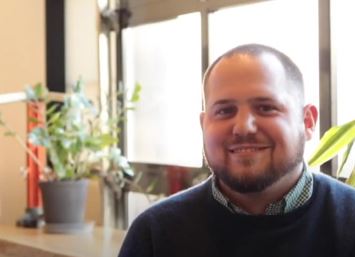
Member Spotlight on Corey Divine, 2022 Board Chairman for VACEOs
Q: Where were you born and raised?
A: I was born in Miami, FL. My parents divorced when I was young, and I spent the early part of my life split between the Florida Keys and Miami. I moved to Charlottesville in middle school and spent the rest of my teenage years in the Commonwealth.
Q: Where did you go to school?
A: I went to Gardner-Webb University, in Boiling Springs, North Carolina, and graduated in 2012 with a Bachelor of Science in business administration.
Q: Who inspired you to become an entrepreneur?
A: My inspiration came from my father. He has owned different businesses my entire life. He demonstrated that if you work hard, you can achieve success while also being present for your family.
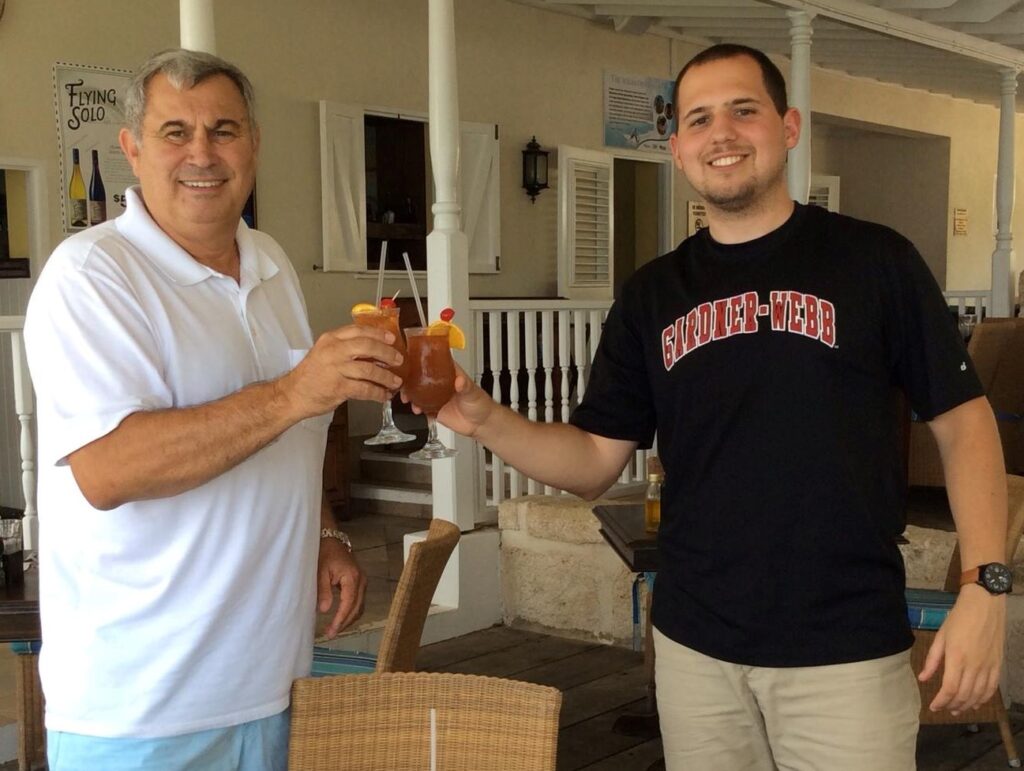
Q: Please tell us about your journey to become a CEO and how old you were when you got started.
A: The first company I founded was Rent The Help. I was 22 and still in college. I finished my last semester online so I could start the business when I did. Our original concept was providing residential labor to homeowners to assist with moving, yard work, and other general “muscle” projects. As the business evolved, we diversified by getting into event staffing and warehouse recruiting. In January of 2020 we broke the company into two separate companies – Rent The Help and Candidate Source.
Rent The Help provides high quality, short term labor for homeowners and Candidate Source provides staffing, recruiting, and direct hire services for a variety of industries.
Q: What excites you most about your role as CEO?
A: I enjoy developing people and solving problems. Every day is a new adventure and I welcome that.
Q: Who is Mr. Leo? Is it true he is the real top dog at Candidate Source?
A: My fiancé and I adopted Leo in the early months of COVID. He came to work with me every day during the pandemic and won over the hearts of our team. Every morning he runs around the office and gets his daily treat from his office friends.
Q: Are there any national/business authors that you follow? What is it about them or their message that resonates with you?
A: I cannot pinpoint one author or business leader that resonates with me. I will share that I am drawn to books about CEOs and leaders that have built something or navigated challenging situations. Over the last few months a few books I have enjoyed are Ride of a Lifetime by Bob Iger (former Disney CEO) and Hot Seat by Jeff Immelt (Former CEO of GE).
Q: During these last few uncertain/difficult years, how did you keep yourself upbeat and motivated?
A: I found the pandemic to be an expensive learning experience. As CEOs we are forced to make decisions that significantly impact our businesses, employees and family members. Unfortunately, for COVID, there was no roadmap to help guide us. But, because we survived the experience and learned from it, we are stronger today than prior to March of 2020.
“VACEOs has been a rewarding experience. Having a network of CEOs to share experiences with is a valuable resource and something that has helped me become a better leader and CEO.”
Corey Divine
Q: What have you learned from COVID?
A: Overall, COVID proved 2 things: 1) If your business has a strong balance sheet you have a head start and are setup to weather difficult storms when they happen. 2) Always be ready for the unexpected. Never get comfortable with your sales or your people. I forget the author, but I read a quote when I first started my business that has always resonated with me “Your sales numbers serve as a scoreboard for the past. Focus on tomorrow, not yesterday.”
Q: Please tell us about your VACEOs experience. How long have you been a member? Why did you originally join? What part of your membership has helped you grow the most as a leader?
A: I originally joined the Council to invest in myself. My early career was all about growing my business, and I rarely took the time to focus on becoming a better leader. When I made the decision to join, I knew I needed to spend more time working on my business rather than in my business. VACEOs provided this platform for me and has been more beneficial than I could have hoped.
VACEOs has been a rewarding experience. Having a network of CEOs to share experiences with is a invaluable resource and something that has helped me become a better leader and CEO.
About Rent The Help and Candidate Source
Rent The Help – Rent The Help’s sweet spot are labor projects in the 2-4 hour range. Our most popular service is moving labor, which we provide throughout the Richmond area. Whether you need help moving an entire home, or just moving a couch from one room to another, our team is here to help. In addition to our moving labor services, we also provide labor services for yard projects, small commercial jobs, & event setup services. Our lives are busy, and the reality is, sometimes you just need a little help.
Candidate Source – We partner with businesses to help them find their most valuable asset – their employees. Our primary focus is in the warehouse, distribution, and manufacturing industries but we also offer solutions for call centers and other entry level administrative positions. We provide these services through a variety of methods but primarily through traditional staffing and direct hire arrangements.
About VACEOs
Virginia Council of CEOs (VACEOs) is a nonprofit organization connecting CEOs for learning and growth. Formed more than 20 years ago, member benefits include placement in a peer roundtable group and access to a thought leader network, and a robust program of events for learning and growth. This is not a networking group, but rather a group of CEO peers who are invested in the success of each member. To qualify for membership CEOs must run a business with $1M+ revenue and 5+FTEs. Learn more at www.vaceos.org.
A Call to Serve Virginia’s Autism Community, at Home
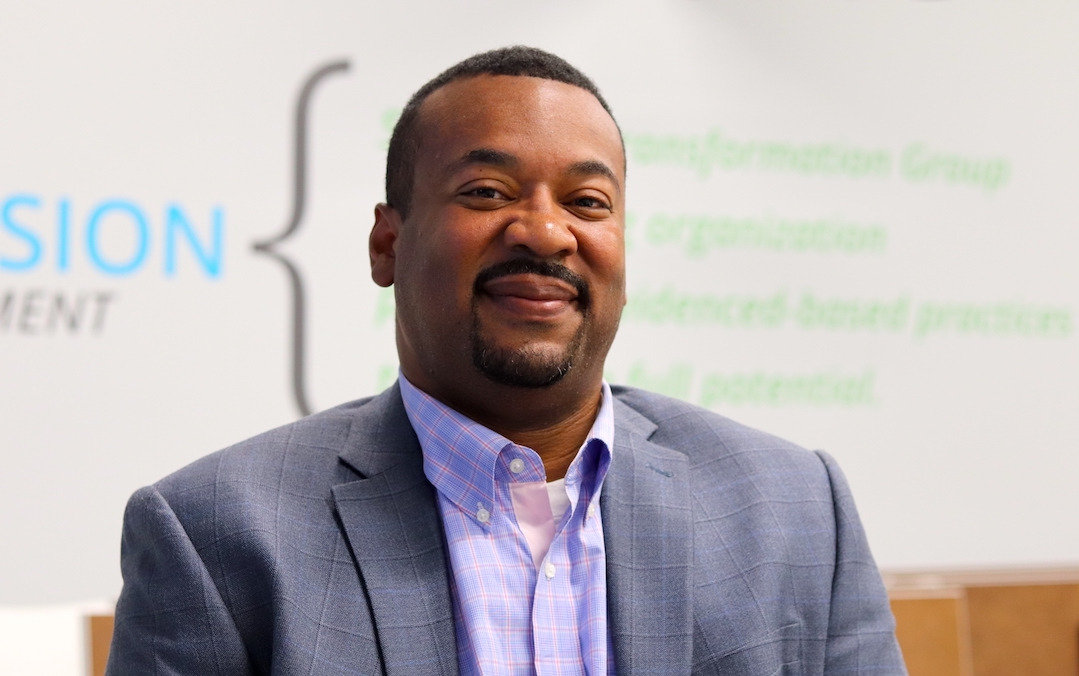
“I’m a kid that grew up in the north side of Richmond, one of the toughest parts of Richmond when I was growing up,” says Dr. Cedric Moore. “And it was my community, which helped shape me, to help me become who I am today and who I continue to try to aspire to be.”
Moore has risen far indeed. He is now the CEO of Spectrum Transformation Group, the first organization licensed in Virginia as an intensive outpatient Applied Behavior Analysis (ABA) service. Also a member of the Virginia Council of CEOs, Moore is supported by a local roundtable group as he implements his strategic plan for Spectrum and navigates various business challenges, including the pandemic.

Listen in as Moore talks about his business, social work, challenges facing minority business leaders, and his new-found home a VA Council of CEOs (Captions available)
Moore’s journey out of the city led to a bachelor’s degree in Social Work from Eastern Mennonite University, an MBA, and later a doctorate in strategic leadership from Regent University. He then returned to Richmond and launched Spectrum in 2010. Still, he admits that before joining VACEOs, he sometimes felt unheard or unacknowledged when in a room of non-minority business leaders.
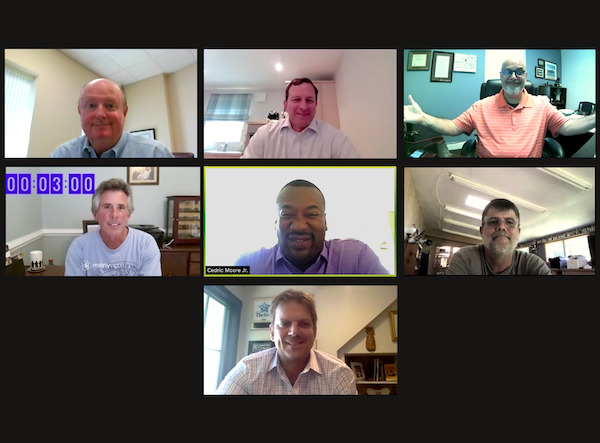
“There were times where, you know, I had to speak a little louder or there were individuals who wouldn’t call on me in a meeting,” he explains. “Those are some things that we face as minorities, even with a terminal degree.”
“I’m very aware sometimes that I’m invited to the table, but I’m not actually welcomed at the table,” he says. “But I understand now that I’m happy to embrace this role and be able to help other minorities, as well to get them a seat at the table. I’m fortunate enough to find the Virginia CEOs and be able to work with Scot [McRoberts, VACEOs executive director].”
“It’s an ability to not only to survive things like the pandemic but also to come out of the situation a lot better. So everyone is there to help each other. I’m so happy, so proud to be a part Roundtable 17. It’s just been great.”
Dr. Cedric Moore, CEO, Spectrum Transformation Group
He elaborates on his VACEOs roundtable peers, “these groups, I mean, they really care about you as a person and they care about your business. It’s an ability to not only survive things like the pandemic but also to come out of the situation a lot better. So everyone is there to help each other. I’m so happy, so proud to be a part Roundtable 17.”
Carrying the Banner for In-home Autism Services
How did Spectrum come to be? “I want to help people. That’s what we do, social work,” Moore explains. “My wife had a passion with autism and that was huge for us.”
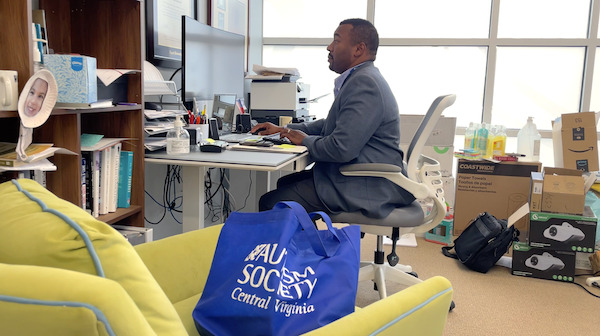
“We met with her mentor, psychology professor Donald Oswald, who is a guru on the East Coast within autism spectrum disorder services,” he says. “That drove us to provide services for a population at the time that there wasn’t much there other than educational services.”
At Spectrum, a team of 52 full-time employees—including psychologists, psychiatrists, behavior analysts and technicians, and speech and language pathologists—provides general mental health diagnoses and a variety of services, such as outpatient therapy.
“We are happy to carry a banner with being the first licensed program in the state to provide those services in the home,” says Moore.
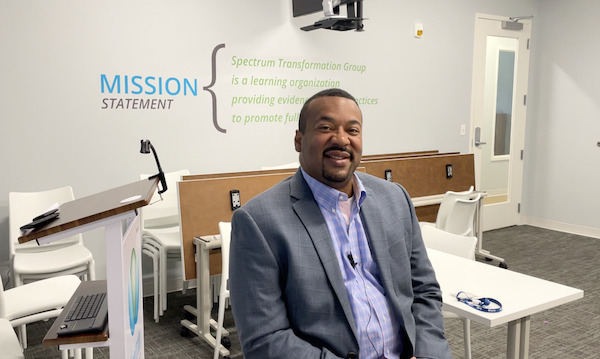
A Future of Service, Family, and Faith
Adapting to a pandemic was especially challenging for an organization whose clients rely on face-to-face interaction. “So going to a telehealth platform made it really difficult. Some of their attention spans are a lot shorter than their peers. Some of them can’t sit for a very long period of time,” explains Moore.
In response, the company redesigned and reconfigured offices, common areas, and therapy spaces to comply with CDC safety guidelines and enable in-person services. “Our ability to be able to pivot was definitely important as we continue to try to meet the needs of those that we serve,” says Moore.
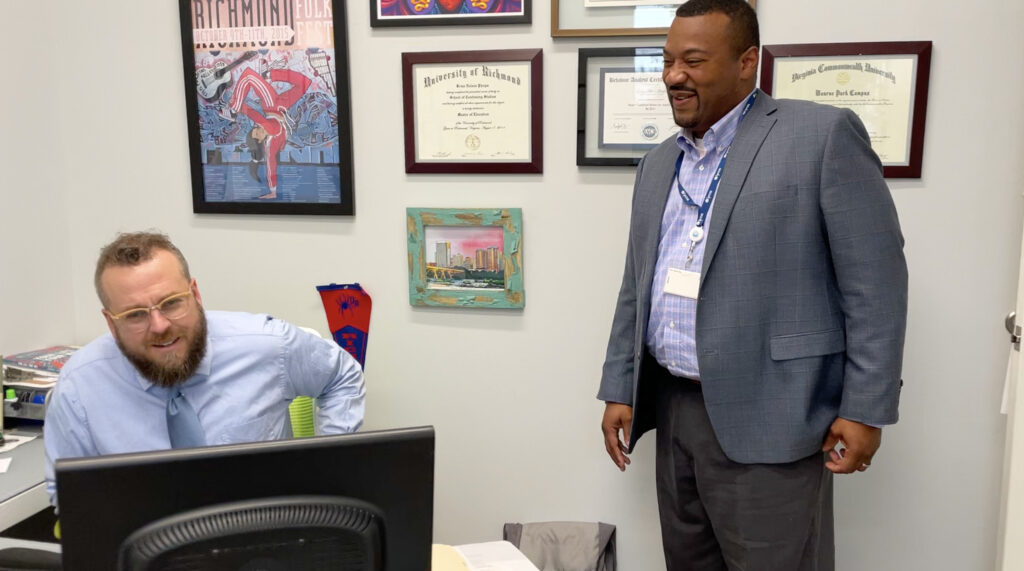
What’s next for Spectrum? The company is implementing phase three of its strategic plan and is bringing on psychiatrists and nurse practitioners. “It’s super exciting. It’s a new learning experience for me,” says Moore.
As important as Moore’s business goals, however, are his family and his faith. “I grew up with a single mom and my ability to be there for my children, it’s very important to me. My ability to be there for my wife is very important to me. And my ability to be able to serve God as best as I can is important to me. So every day I’m just trying to be better than what I was the day before.”


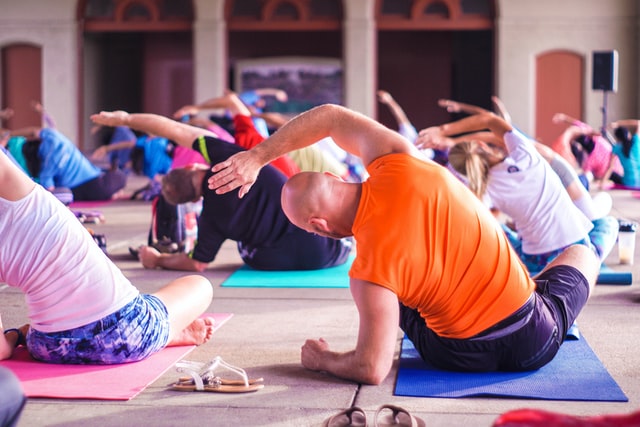
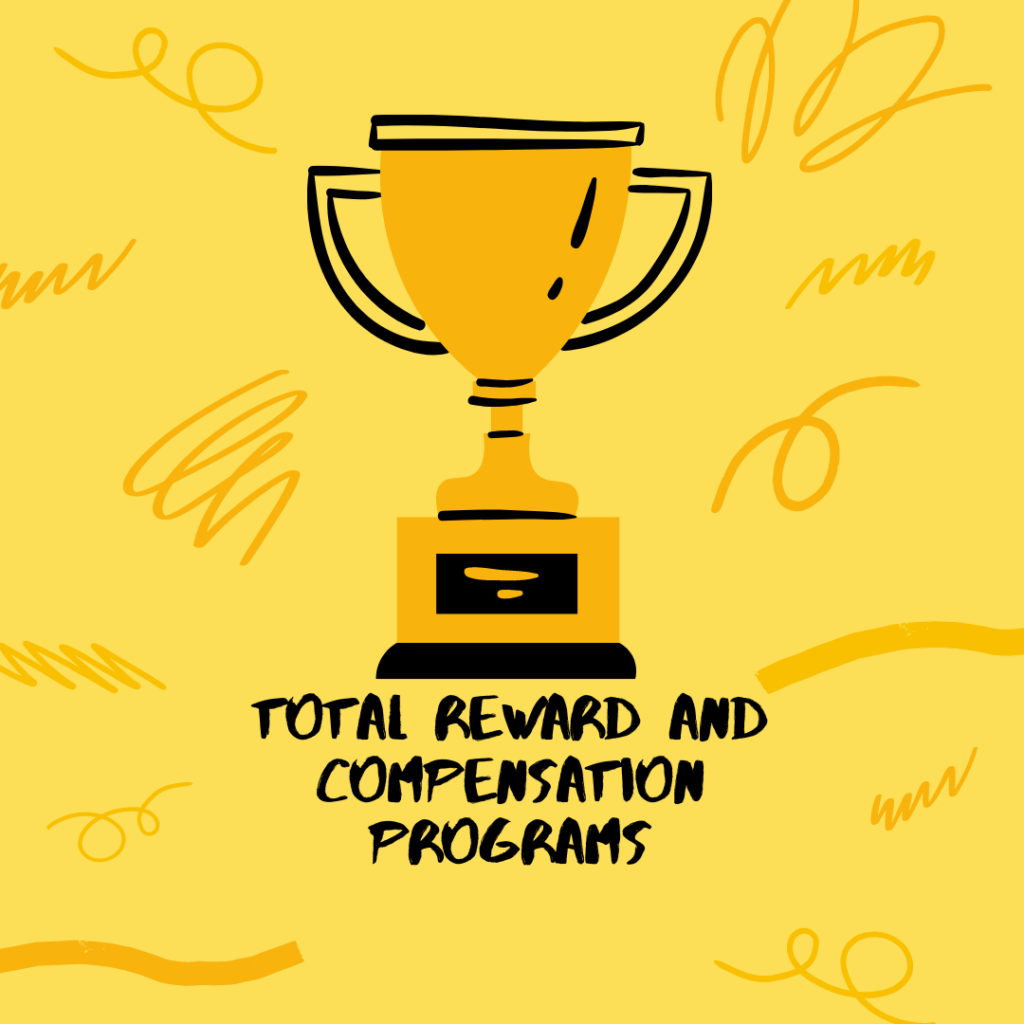
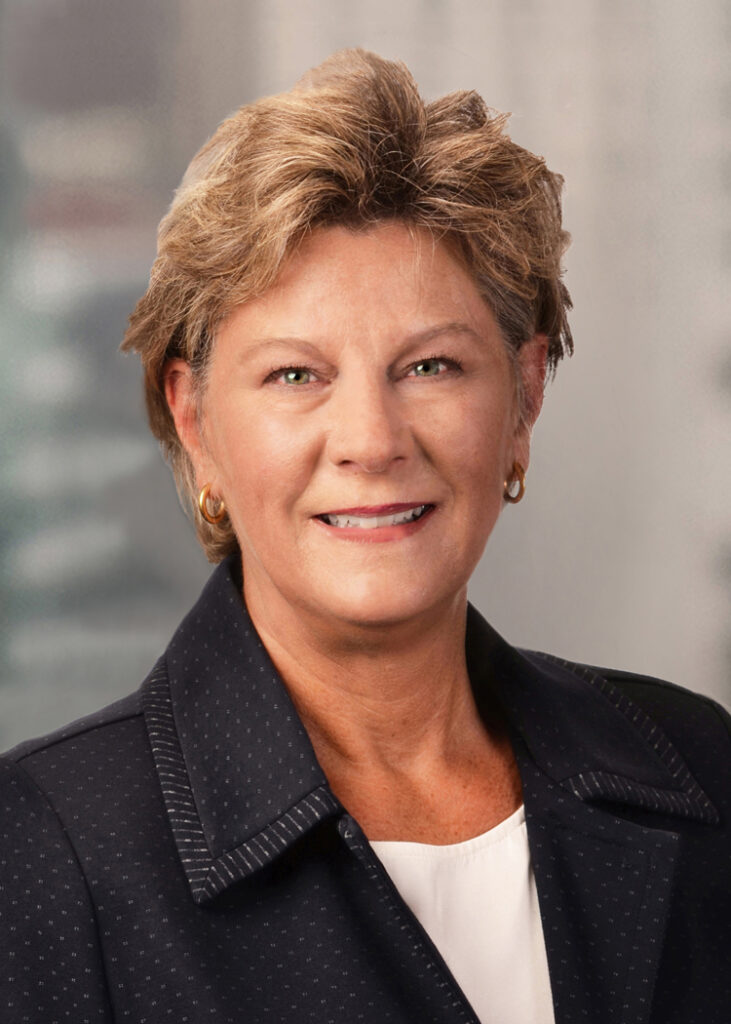





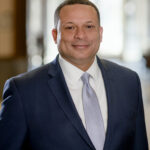
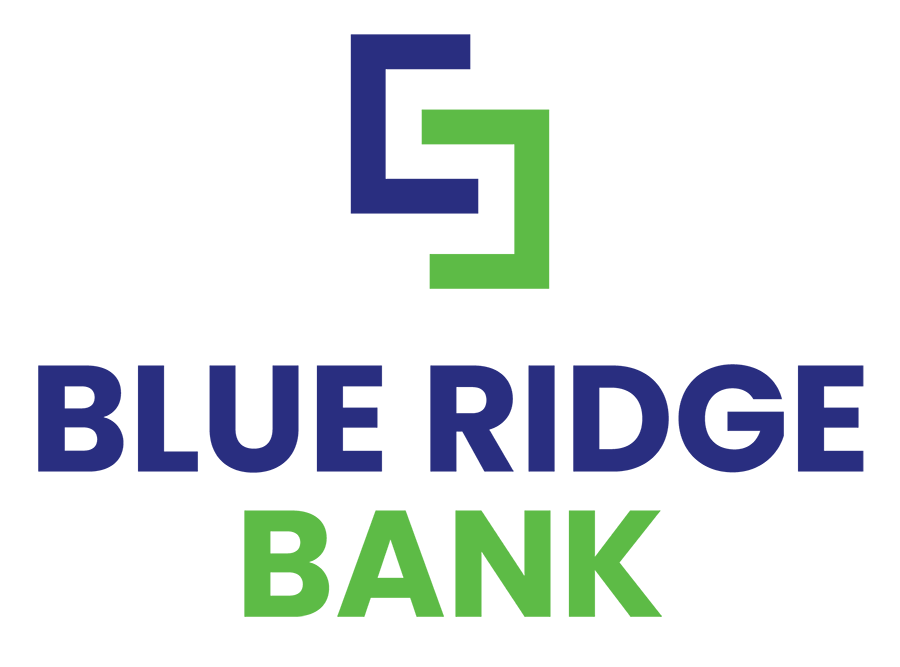


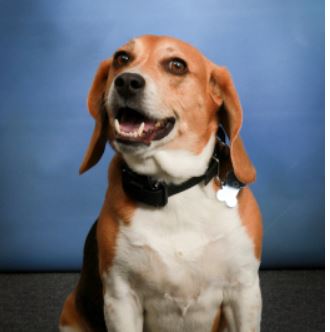
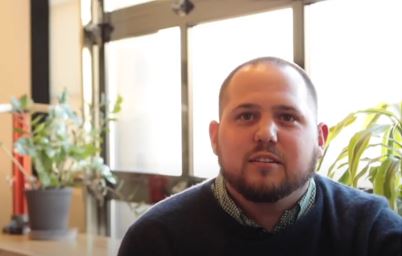
Recent Comments